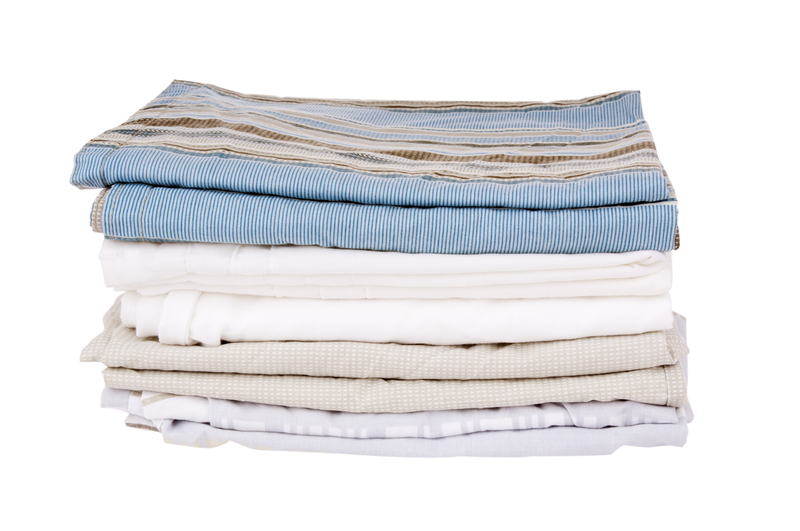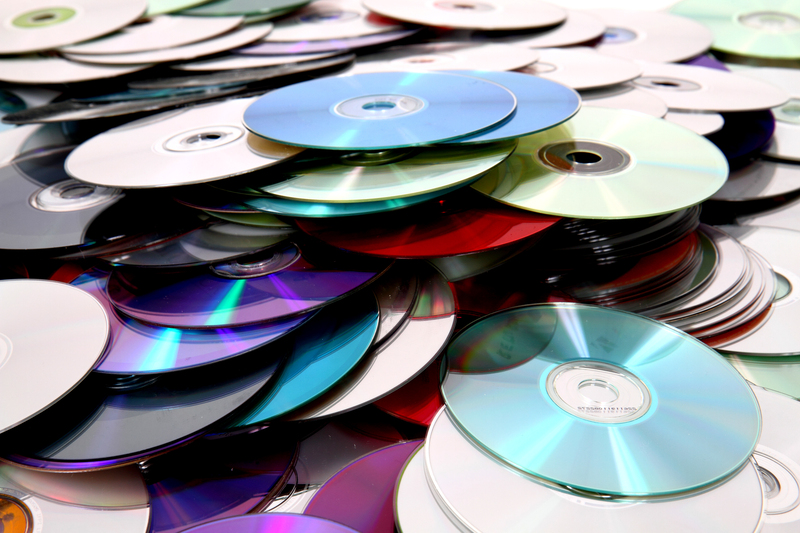Redefine Waste with These Innovative Upcycling Solutions
Waste is a growing concern in our modern world, with landfills contributing to pollution, resource depletion, and environmental degradation. But what if we could view waste not as a problem, but as an opportunity? Innovative upcycling solutions offer creative and sustainable ways to turn discarded items into valuable products, thus redefining waste. In this comprehensive article, we'll delve into how you can rethink, repurpose, and revolutionize your approach to waste through smart upcycling.
What is Upcycling, and How Does It Redefine Waste?
Upcycling is the process of transforming by-products, waste materials, unwanted, or useless products into new materials or products of better quality and environmental value. Unlike recycling, which often downgrades materials' quality, upcycling maintains or improves it. This vital approach addresses pressing environmental issues while inspiring creativity and innovation.
- Conserves natural resources by reducing the need for raw material extraction.
- Decreases landfill waste and reduces greenhouse gas emissions.
- Sparks creativity and opens doors for unique homemade or commercial projects.
- Engages communities and stimulates green jobs and sustainable economies.
Why Redefine Waste?
When we redefine waste through upcycling, we shift from a throwaway culture to a circular economy, in which resources are valued and reused. Viewing waste as a resource spurs innovation in design, manufacturing, and everyday living, promoting both environmental and economic progress.

Top Innovative Upcycling Solutions to Transform Your Waste
Here are some of the most creative and effective upcycling ideas and projects that illustrate how waste can be turned into something amazing and useful:
1. Furniture from Pallets and Scrap Wood
*Industrial pallets* and scrap wood are often discarded after shipping goods. With a bit of imagination, they can be transformed into stylish furniture like coffee tables, beds, chairs, and bookshelves. Not only does this give wood a new life, it also reduces demand for freshly cut timber.
- Pallet Sofas & Tables: Perfect for patios or living rooms and can be customized to fit any decor style.
- Bookshelves & Storage Units: Maximize small spaces and add rustic charm to your home.
- Outdoor Garden Planters: Ideal for urban gardening or balcony spaces.
2. Textile Upcycling: Fashion Revolution
The fast fashion industry is notorious for generating textile waste. Upcycling garments, leftover fabric, or even old denim can spawn one-of-a-kind clothing and accessories.
- Patchwork Jeans & Jackets: Combine denim scraps to breathe new life into old favorites.
- Fabric Tote Bags: Reduce plastic bag use by crafting totes from t-shirts or bed sheets.
- Quilts & Blankets: Use fabric remnants to create cozy, personalized throws.
3. Plastic Bottle Innovations
Plastic bottles are among the most problematic waste products due to their slow decomposition. Ingenious upcyclers transform bottles into:
- Vertical Gardens: Make urban gardens by hanging bottles on walls or fences.
- Chandeliers and Lamps: Add a modern aesthetic to interiors while reducing plastic pollution.
- Broom or Brush Handles: Repurpose bottles as functional household tools.
4. Glass Jar and Bottle Makeovers
Glass waste can take hundreds of years to break down. Creative upcycling ideas include:
- Candle Holders & Lanterns: Decorated jars make perfect rustic lighting.
- Storage Solutions: Organize kitchen or craft spaces by using glass containers for bulk goods or small items.
- Vases & Planters: Add greenery indoors with transformed glassware.
5. Electronic Waste Upcycling
Old electronics are a major source of environmental toxicity, but with a little ingenuity, they can be transformed rather than trashed:
- Circuit Board Art: Create eye-catching wall art, coasters, or jewelry from discarded PCBs.
- Retro Clocks: Turn outdated floppy disks or hard drives into quirky timepieces.
- Planters from Old Computer Monitors: Give outdated screens a new purpose as unique plant pots.
6. Upcycling Tires into Outdoor Furniture
Tires are difficult to dispose of, but they're also remarkably durable. Upcycling solutions include:
- Tire Swings & Playground Equipment: Offer fun outdoor items with a minimal carbon footprint.
- Garden Ottomans & Tables: Cover with rope or paint for stylish, weatherproof seating.
- Raised Garden Beds: Use tires to create low-cost, elevated planting spaces.
7. Creative Use of Shipping Containers
Old shipping containers are being revolutionized as cost-effective, eco-friendly solutions for:
- Affordable Housing: Turn containers into modular homes or offices.
- Pop-up Cafes or Shops: Eye-catching, mobile business venues.
- Urban Farms: Controlled environments for year-round crop production.
Innovative Upcycling in Art and Design
Upcycling isn't limited to functional items--it's also fueling an artisanal movement in art, sculpture, and interior decor. From dramatic installations built from old vehicle parts to delicate jewelry from scrap metal, these creations redefine waste as a source of beauty and inspiration.
- Found Object Sculptures: Transform urban detritus into thought-provoking gallery pieces.
- Mixed Media Wall Art: Combine textiles, plastics, wood, and metal for layered, multidimensional works.
- Repurposed Jewelry: Old watch parts, keys, or electronic pieces get new lives as wearable art.
Redefining Waste in Business: Upcycling Startups and Enterprises
Innovative upcycling isn't just a personal project--it's reshaping the business landscape. Enterprises and startups worldwide are leading the charge with commercially scalable upcycled products. Here are some standout examples:
1. Ocean Plastic into Fashion
Businesses like Parley for the Oceans and sportswear giant Adidas have developed shoes and clothing using plastic waste harvested from oceans, proving that fashion can help clean up the planet.
2. Bottle Bricks and Building Materials
Companies now manufacture eco-bricks from compressed plastic bottles, replacing traditional bricks in construction. These lightweight, durable building materials help address both the housing shortage and the plastic pollution crisis.
3. Furniture from Recycled and Reclaimed Materials
Many boutique and large-scale designers source their materials from upcycled wood, metal, and plastics, incorporating stories and sustainability into every product.
- Impact: Commercial upcycling reduces waste at scale and influences industry standards.
- Economic Benefits: It creates jobs in material collection, sorting, and creative design.
DIY Upcycling: How to Start Redefining Waste at Home
Ready to take up the upcycling challenge? Here are simple steps for individuals and families to redefine waste and join the eco-innovation revolution:
1. Audit Your Waste
Start by observing what you throw away most. Plastic, glass, textiles, and paper all offer upcycling opportunities.
2. Gather Tools and Inspiration
Basic tools like scissors, glue, paint, and a good imagination are your primary assets. Online platforms such as Pinterest and YouTube are treasure troves for upcycling ideas.
3. Join Community Upcycling Workshops
Look for local repair cafes, makerspaces, or upcycling events to learn skills, share ideas, and collaborate on larger projects.
4. Document and Share Your Creations
Inspire others by sharing your projects on social media. Celebrate your success--every upcycled item makes a difference!
Challenges and Opportunities in Upcycling
While innovative upcycling solutions offer many benefits, they are not without challenges:
- Quality Control: Maintaining strength and safety when using waste materials.
- Scaling Up: Many ideas work well on a small scale but need investment and infrastructure to scale.
- Consumer Perception: Some consumers may prefer new, virgin products.
*Opportunities abound*, however, as consumer preferences shift toward eco-consciousness, and technology makes upcycling more efficient and accessible.

Future Trends: The Next Wave of Redefining Waste
The future is bright for upcycling, with ongoing research, technology, and circular economy policies driving new solutions:
- AI-Powered Waste Sorting: Automating material separation to feed upcycling industries.
- Biodesign and Living Materials: Using fungi, bacteria, or algae to create new materials from organic waste.
- Blockchain for Waste Traceability: Ensures transparency in waste sourcing for upcycled goods.
- Corporate Partnerships: More collaborations between big brands and upcycling startups.
Conclusion: Redefining Waste Is Creative, Practical, and Urgent
Redefining waste with innovative upcycling solutions is not just an environmental necessity, but also a path to creativity, community resilience, and economic opportunity. Whether you're an individual, an artist, or a business leader, the power to transform waste into wealth is within your grasp. Let's move beyond recycling, embrace upcycling, and reimagine our relationship with waste for a cleaner, greener future.
Start today -- redefine waste and discover the endless potential locked inside your trash!
